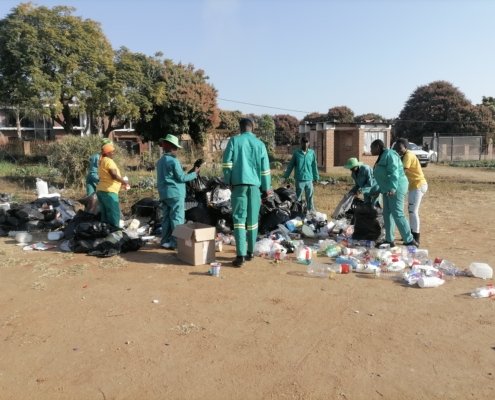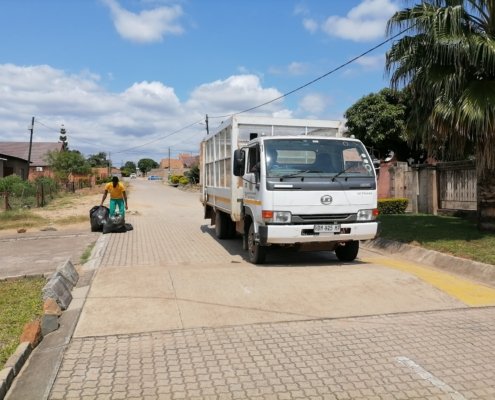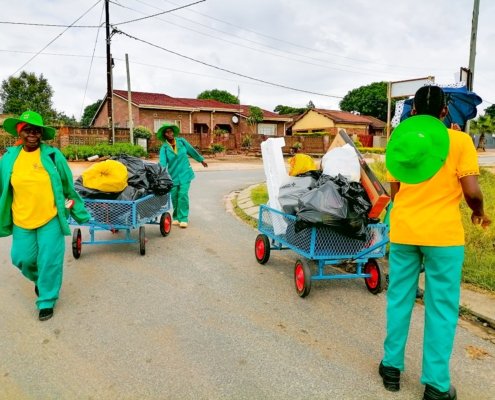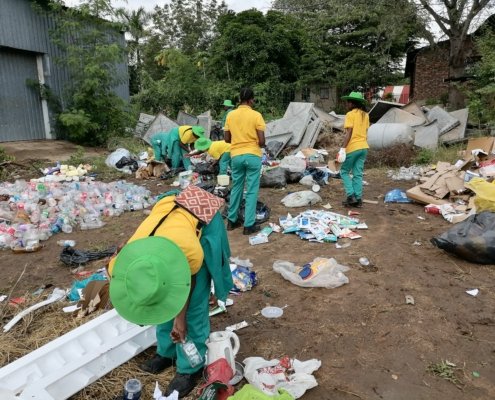During August 2025, Samuel Kumbula, Project Coordinator for the ISOW project, visited the Mkhuhlu Separation-at-Source (S@S) Pilot Project in Mpumalanga. Funded by the Department of Forestry, Fisheries and Environmental Affairs and implemented by the Bushbuckridge Municipality under Operation Phakisa, this initiative supports the National Development Plan by creating jobs, promoting recycling, and driving local economic growth.
Samuel met with cooperative waste reclaimers partnering with the municipality on the 12-month pilot, which involves 735 households. He facilitated a materials identification training session, equipping the group with practical recycling knowledge, while also gathering valuable insights into how the pilot operates on the ground. These learnings are especially important for the ISOW project, as they highlight how household collection systems can be adapted and replicated in Thulamahashe.
The Stakeholder Workshop in Bushbuckridge brought together diverse voices – including the municipality, traditional leaders, recyclers, community representatives, Plastics SA, and academic partners.
Discussions underscored the importance of flexible, community-driven approaches that integrate with municipal systems, backed by strong governance and sustainable funding. Key recommendations included:
-
Piloting solutions in both township and village contexts.
-
Strengthening community awareness campaigns.
-
Introducing reusable collection resources.
-
Ensuring waste reclaimers remain central to service delivery.
Building strong partnerships and generating practical solutions that will shape the design of future pilots is the key towards creating inclusive, scalable, and sustainable waste management systems for Bushbuckridge, with the potential for wider replication under the ISOW project.
__________________________________________
The project is implemented by the Deutsche Gesellschaft für Internationale Zusammenarbeit (GIZ) and commissioned by the Germany’s Federal Ministry for Economic Cooperation and Development (BMZ) additionally co-funded by the European Union through regional and bilateral Team Europe Initiatives (TEIs) and Norway.






